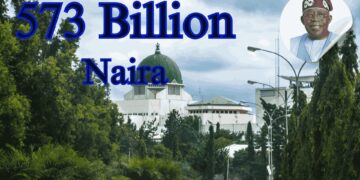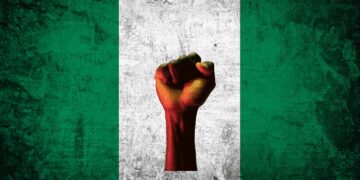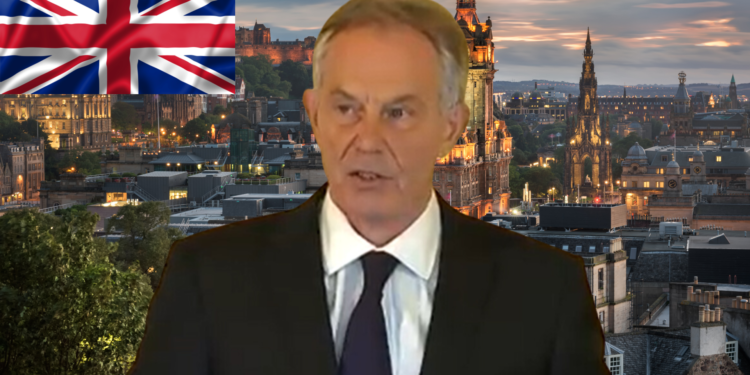Tony Blair, born on May 6, 1953, in Edinburgh, Scotland, emerged as a transformative figure in British politics. As the leader of the Labour Party from 1994 to 2007 and Prime Minister of the United Kingdom from 1997 to 2007, Blair’s tenure marked a significant shift in the political landscape. His leadership style, policies, and the controversies surrounding his decisions have left an indelible mark on the history of modern Britain.
Early Life and Political Ascent
Anthony Charles Lynton Blair, known to the world as Tony Blair, was raised in a middle-class family. His father, Leo Blair, was a barrister and later a law lecturer, while his mother, Hazel, was active in the local community. Blair’s formative years were spent in Durham, and he later attended Fettes College in Edinburgh, a prestigious private school. He pursued higher education at St John’s College, Oxford, where he studied law.
Blair’s early career was marked by a brief stint as a rock music promoter before he turned to law. He joined the Labour Party in 1975, inspired by the ideals of social justice and equality. Blair’s charisma and eloquence quickly earned him a reputation as a rising star within the party.
Rise to Power
Blair entered Parliament in 1983, representing Sedgefield. His political acumen and moderate stance helped him rise through the party ranks. In 1994, following the sudden death of Labour leader John Smith, Blair was elected leader of the party. He embarked on a mission to modernize the party, coining the term “New Labour” and embracing centrist policies that appealed to a broader electorate.
Under Blair’s leadership, Labour won a landslide victory in the 1997 general election, ending 18 years of Conservative rule. His campaign promise of “New Labour, New Britain” resonated with voters eager for change.
Domestic Achievements
Blair’s tenure as Prime Minister was marked by significant domestic reforms. His government introduced the minimum wage, expanded civil liberties, and implemented major educational and health service reforms. The establishment of devolved governments in Scotland and Wales and the signing of the Good Friday Agreement in Northern Ireland were landmark achievements that contributed to peace and regional stability.
One of Blair’s notable achievements was his focus on education, summarized in his famous mantra, “Education, education, education.” His government invested heavily in schools and introduced measures to raise educational standards.
International Role and Controversies
Blair’s international legacy is mixed. He was a staunch advocate for humanitarian intervention, playing a key role in the NATO intervention in Kosovo in 1999. However, his most controversial decision was to support the U.S.-led invasion of Iraq in 2003. Blair’s government claimed that Iraqi dictator Saddam Hussein possessed weapons of mass destruction, a claim that later proved unfounded.
The Iraq War significantly tarnished Blair’s legacy. The conflict led to widespread violence and instability in the region, and the justification for the war was heavily criticized. The Chilcot Inquiry, published in 2016, concluded that the invasion was based on flawed intelligence and that peaceful options had not been exhausted.
Post-Premiership Activities
After leaving office in 2007, Blair remained active on the global stage. He served as the Quartet’s Special Envoy to the Middle East, working on peace initiatives between Israel and Palestine. He also founded the Tony Blair Institute for Global Change, focusing on governance, economic development, and counter-extremism.
Blair has continued to influence public discourse through his writings and speeches. His memoir, “A Journey,” published in 2010, provides insights into his time in office and his views on global politics.
Legacy
Tony Blair’s legacy is one of transformation and controversy. He modernized the Labour Party and implemented significant domestic reforms that have had a lasting impact on British society. However, his role in the Iraq War remains a contentious aspect of his record.
Blair’s ability to connect with the public and his vision for a modern Britain reshaped the political landscape. Despite the controversies, his influence on British politics endures, and his tenure as Prime Minister remains a subject of study and debate for historians and political analysts.
In the ever-evolving narrative of British politics, Tony Blair stands out as a leader who dared to change the status quo, for better or worse. His journey from a young lawyer to a world leader is a testament to the complexities and challenges of political leadership in the modern era.




















































